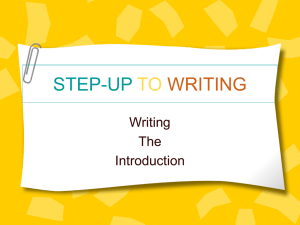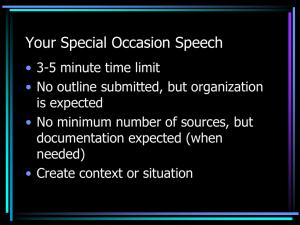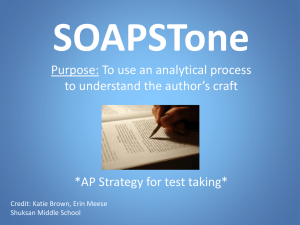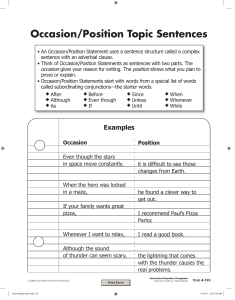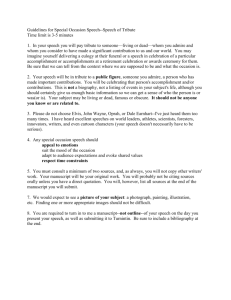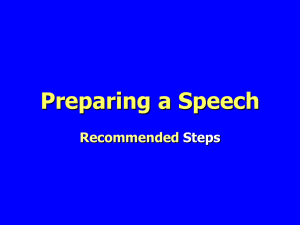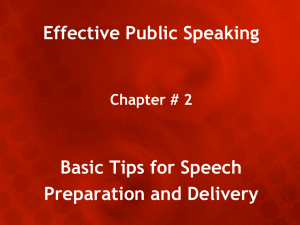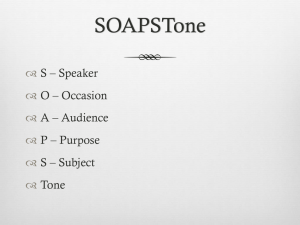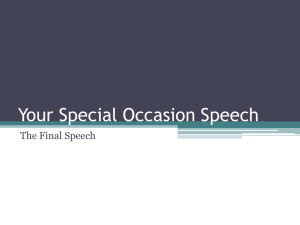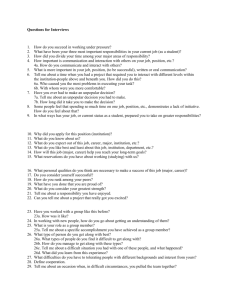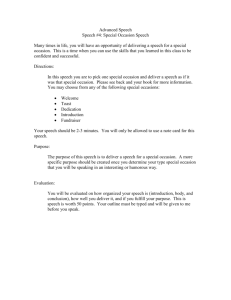Most good writing, we are told over and over again, must have
advertisement
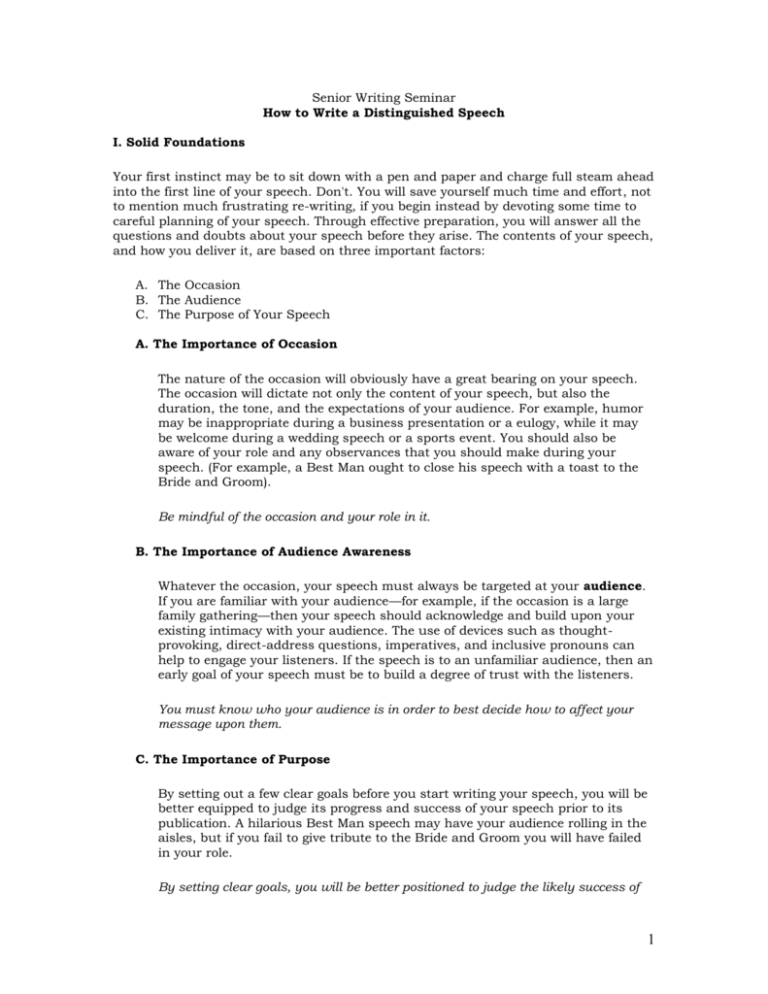
Senior Writing Seminar How to Write a Distinguished Speech I. Solid Foundations Your first instinct may be to sit down with a pen and paper and charge full steam ahead into the first line of your speech. Don't. You will save yourself much time and effort, not to mention much frustrating re-writing, if you begin instead by devoting some time to careful planning of your speech. Through effective preparation, you will answer all the questions and doubts about your speech before they arise. The contents of your speech, and how you deliver it, are based on three important factors: A. The Occasion B. The Audience C. The Purpose of Your Speech A. The Importance of Occasion The nature of the occasion will obviously have a great bearing on your speech. The occasion will dictate not only the content of your speech, but also the duration, the tone, and the expectations of your audience. For example, humor may be inappropriate during a business presentation or a eulogy, while it may be welcome during a wedding speech or a sports event. You should also be aware of your role and any observances that you should make during your speech. (For example, a Best Man ought to close his speech with a toast to the Bride and Groom). Be mindful of the occasion and your role in it. B. The Importance of Audience Awareness Whatever the occasion, your speech must always be targeted at your audience. If you are familiar with your audience—for example, if the occasion is a large family gathering—then your speech should acknowledge and build upon your existing intimacy with your audience. The use of devices such as thoughtprovoking, direct-address questions, imperatives, and inclusive pronouns can help to engage your listeners. If the speech is to an unfamiliar audience, then an early goal of your speech must be to build a degree of trust with the listeners. You must know who your audience is in order to best decide how to affect your message upon them. C. The Importance of Purpose By setting out a few clear goals before you start writing your speech, you will be better equipped to judge its progress and success of your speech prior to its publication. A hilarious Best Man speech may have your audience rolling in the aisles, but if you fail to give tribute to the Bride and Groom you will have failed in your role. By setting clear goals, you will be better positioned to judge the likely success of 1 your speech. II. The Importance of Structure Most good writing, we are told over and over again, must have structure. A good speech is no exception. By providing your speech with a beginning, a middle, and an end, you will have laid the foundations for a successful speech that fulfils all of your aspirations. A. The Beginning The first thirty seconds of your speech are probably the most important. In that period of time you must grab the attention of the audience and engage their interest in what you have to say in your speech. This can be achieved in several ways. For example, you could raise a thoughtprovoking question, make an interesting or controversial statement, or cite a relevant quotation. Once you have won the attention of the audience, your speech should move seamlessly to the middle of your speech. B. The Body The body of your speech will always be the largest part of your speech. At this point, your audience will have been introduced to you and the subject of your speech (as set out in your opening) and will hopefully be ready to hear your arguments, your musings or your thoughts on the subject of your speech. The best way to organize the body of your speech is by formulating a series of points that you would like to raise. In the context of your speech, a "point" could be a statement about a product, an anecdote about the bridegroom, or a fond memory of the subject of a eulogy. The points should be organized so that related points follow one another so that each point builds upon the previous one. This organization will also give your speech a more logical progression and make the job of the listener a far easier one. Don't try to overwhelm your audience with countless points. It is better to have fewer points that you make well than to have too many points, none of which are made satisfactorily. C. The Closing Like the Opening, the Closing of your speech must contain some of your strongest material. You should view the closing of your speech as an opportunity. It is an opportunity to do one or more of the following: Summarize the main points of your speech Provide some further food for thought for your listeners Leave your audience with positive memories of your speech · Choose the final thought/emotion (for example, with well wishes to the Bride and Groom, with fond memories of a departed friend, with admiration for winners and losers at an awards ceremony etc) 2 Self-Checklist for Speech Score: Distinguished I have a clear purpose, and I fully support it with appropriate personal or factual information. I have chosen numerous specific details, illustrations, and quotations that more than adequately support my purpose. I have an organization (obvious beginning, middle, and ending) that helps to logically develop my argument and does not stray off-topic. I understand the type of audience for whom I am writing, and I use diction and analysis that they will understand. Score: Proficient I have a clear purpose, and I give it some support. The information is presented clearly. I have chosen enough specific details to support my purpose. I have an organization that is logical. I understand the type of audience for whom I am writing. Score: Apprentice I have attempted to accomplish a purpose, but I may not have made that purpose very clear. I tried to support my purpose with some details, but I may not have done a very good job. The details may not be the best ones I could have chosen—or they might not even support my stand. There are some details but they are too general or may not really help to explain my position. I attempted to have organization, but I did not do a good job with it. I made an attempt to understand the audience for whom I was writing. Score: Novice I tried to respond to the prompt, and I presented some information—but I did not make my purpose clear. I have little or no details. I have no real organization. 3 I did not try to write for my specific audience. 4
